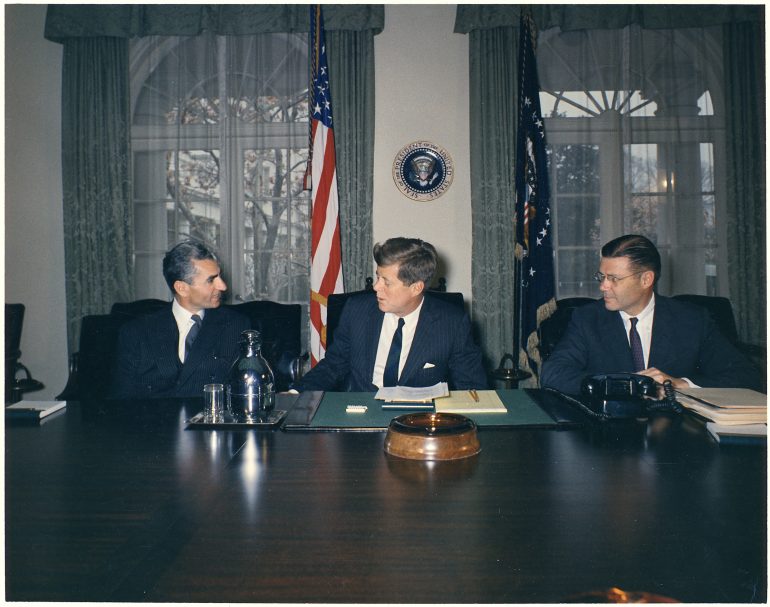The past week has seen a rapid escalation in tensions between the United States and Iran following the US assassination of Iranian general Qasem Soleimani in Baghdad.
While the media has been quick to whip up fears of World War III, and President Donald Trump and Ayatollah Ali Khamenei have exchanged threats alongside some minor attacks, the world at large, and the Jewish world in microcosm, has been sorely split over the attack.
While many hail Trump as a hero for eliminating a dangerous threat to the West, others condemn the assassination as yet another extension of US imperialism in the Middle East.
By examining the roles that Iran and the US play in Hebrew historiography, however, we can come to a deeper understanding of these recent tensions.
The present-day nation of Iran has inherited the territory, language, and many cultural norms of ancient Persia, the second of the four world empires that usurp Israel’s role on the world stage and attempt to obstruct the fulfillment of our historic mission.
Characterized by both the Purim story and Emperor Cyrus granting permission to the Jews of his empire to return to Judea and rebuild Jerusalem’s Temple, Persia has a mixed legacy in our national memory.
Aḥashverosh’s celebration of the Jewish exile and his later collaboration with Haman to exterminate Israel highlight the more negative facets, while Cyrus the Great’s earlier benevolence in allowing Ezra and Neḥemia to return to Eretz Yisrael and restore the Temple represent the positive (so long as one accepts a reality in which a foreign ruler has the power to grant or withhold such permission).
Complicating the picture, even after Haman’s attempted genocide, the vast majority of Jews within the Persian empire chose to remain in their places of exile rather than return home to the promised land and participate in reviving the nation.
The United States, in contrast, plays a less explicitly clear role in Hebrew historiography. The disconnect between the Biblical world of Africa, Europe, and Asia and the distant American continent does not provide clear answers, but the widely accepted history of “Western civilization” provides a clue.
The US, established by European colonizers through the destruction of an indigenous population and a brutal slave system, traces its identity and values to Christian Europe, which in turn draws from the Roman Catholic Church, and by extension the Roman Empire.
Rome and its incarnations, known in Jewish history as the fourth empire, represents the final exile that continues until Israel’s redemption.
Since the Roman destruction of Jerusalem, and the suppression of successive Jewish uprisings, Rome has represented an attempt to assimilate and integrate the Jewish people into the Roman worldview, by cultural persuasion when possible and by force when necessary.
Beyond their contrasting influences on the Children of Israel, these two empires and their inheritors have fought countless wars, from the Roman-Parthian wars, Byzantine-Sassanid wars, a series of Crusades, the Holy League wars, and more in recent centuries.
The broader Eastern Mediterranean, including Eretz Yisrael has consistently featured heavily in these conflicts. Yet, following the decline of the Safavid Empire, the rise of European colonial powers in the Middle East in the late 18th and early 19th centuries, and the ascendance of global US hegemony following World War II, the dynamics of this conflict has taken a sharp turn.
Under Russian influence in World War I, British influence in World War II, and US influence during the Cold War, the Qajar and Pahlavi dynasties in Persia were forced to comply with Western demands as had not happened since the second century (when only a Hebrew revolt across the Eastern Mediterranean halted Roman consolidation after conquering the Parthian capital).
This culminated in US support for Mohammad Reza Shah Pahlavi (the last Pahlavi Shah) after his overthrow and with the Central Intelligence Agency orchestrating his restoration through a coup against democratically elected Iranian Prime Minister Mohammad Mossadegh. This duplicity set the stage for the Islamic Revolution which, among its Islamic aims, promised an independent Iran free from the control of Western powers.
Central to US support of the Pahlavis was their pro-Western stance and inclination towards capitalism, developed during the Shah’s education in Switzerland. Washington’s opposition to Mossadegh, and continued antagonism towards Khamenei, stem from the fourth empire’s antagonism towards socialism and theocracy.
Just as ancient Rome integrated diverse peoples across its empire, through persuasion if possible and force if necessary, the US and Britain have spent the past century in the Middle East, exploiting resources and transforming cultures, through “free markets” and open exchanges when possible and through orchestrated political upheavals and wars when necessary.
So in reflecting on this week, it is clear that neither Iran nor the US is an honest friend of Israel, just as neither Persia nor Rome had Judean’s best interests at heart. Governing forces in Iran, like Haman so many years before, call daily for the destruction of Israel and the murder of Jews.
Even though many in Iran are less virulently antagonistic, the best we can hope for from Iran is an alliance of necessity, supporting our national self-determination (as the Persians did in the seventh century when Israel revolted against the Byzantine Empire and Iran did following the State of Israel’s establishment in 1948) while aiding each other in mutual defense (reminiscent of the Judean revolt during the Roman invasion of Parthia).
Yet like Persia before it, Iran does not represent the greatest obstacle to Israel’s national rebirth and ultimate redemption. That title is held by Washington and its allies, inheritors of Rome and current manifestation of the fourth empire. While the Americans offer aid and friendship, and even the boon of their military strength (just as Hasmonean leader Shimon HaTarsi accepted aid from the Roman Republic in his war against the Seleucid-Greeks), their deeper aims remain unchanged – integration and assimilation.
By empowering the forces most amenable to their influence within Israeli society, American leaders throughout have been working to turn Israel into yet another US outpost in the Semitic region.
But this closeness to Western influence distances us from our true aim of becoming a self-sufficient independent Hebrew society in the land of our ancestors. American (and British) strategies of divide and conquer have continuously isolated Israel from our potential allies in the region, from Iran to the Palestinians in our land. And on an even deeper level, the unfettered individualism and capitalism of American culture distances us from serving HaShem and living His Torah on a national level “k’ish eḥad b’lev eḥad – as a collective body with one unified heart.”





